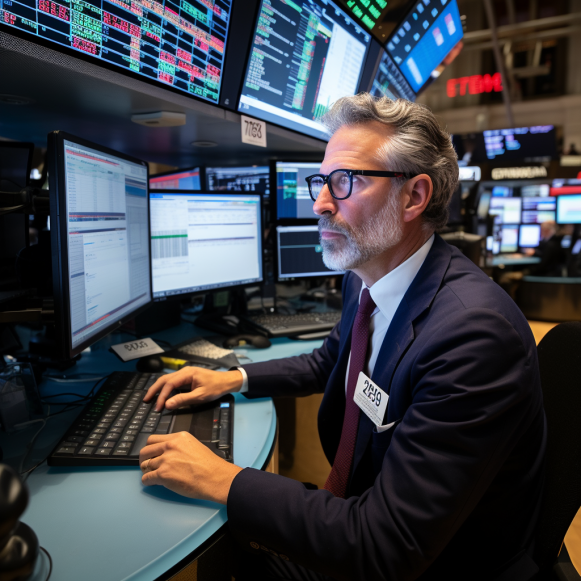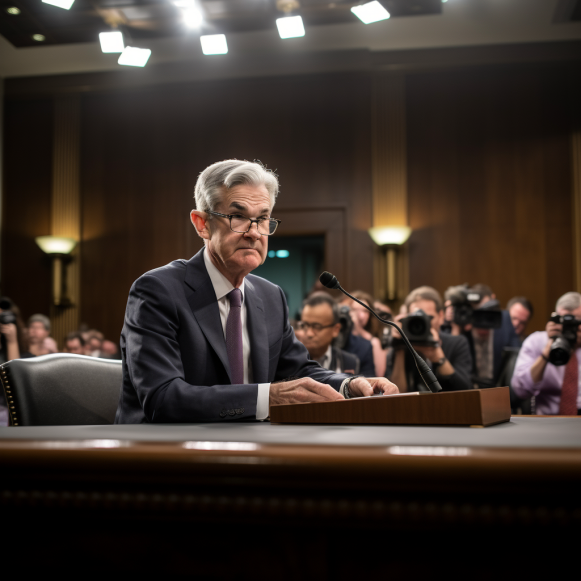
- The S&P 500 has regained momentum in the last week after being sharply oversold.
- Despite rising geopolitical tensions, stocks seem to have a positive risk-reward setup.
- Here are the four best parts of the stock market to invest in, according to Truist.
According to a veteran Truist strategy chief, history is repeating itself.
Soaring interest rates and a slowing economy drove US stocks to 52-week lows last October. From there, the battered S&P 500 bottomed out and enjoyed a strong six-week rally.
Twelve months later, the S&P 500 has been pummeled by lingering concerns about interest rates and a recession. In a recent note, Truist co-investment chief Keith Lerner noted that the index had just reached an oversold level not seen since last fall.
However, stocks have recovered from their September slump in the last week. Truist strategists, like their counterparts at Bank of America and Goldman Sachs, believe the gains will continue.
“The risk-reward ratio has become more favorable,” Lerner told Insider in a recent interview. “It gets a little bit harder as you move up off those lows now, but I would still say that I think a lot of people were caught offsides, and I think there’s more to go in this recent move.”
Expect a rally despite geopolitical turmoil and high bond yields.
Stocks are gaining traction, but investors who missed the rally can still get back in, according to Lerner. The chief market strategist does not expect the S&P 500 to fall or rise to new highs this year. He believes the index will remain in a choppy range of 4,200 to 4,600.
“We have an oversold bounce that likely has more room to run,” he said.
Lerner’s optimistic outlook is despite his belief that the US economy will contract in the coming year. Truist’s recession prediction is more of a 60-40 bet than a sure thing, he says. He is, however, confident that economic growth will slow, even if it remains positive.
“If you have a gun to my head, I would still say that the house view is still one of a recession, which is more consistent with the hard landing,” Lerner said in an interview.
The global economy faces numerous threats, including a slew of geopolitical conflicts. For the past 18 months, the Russia-Ukraine conflict has hung over markets, and renewed fighting in Israel has some analysts concerned that the conflict will cause a downturn. Without dismissing the humanitarian disaster, Lerner stated that terrorist attacks in Israel are not yet a reason to sell stocks.
“Is this going to change the global economy as far as economic growth in a material way?” Lerner stated. “There’s a lot of things that could happen, but at this point, it’s probably — given the size and these ongoing tensions in these regions — not yet.”
Instead, Lerner advises investors to keep an eye on interest rates. Financial conditions are already tight, and the Federal Reserve may reconsider its higher-for-longer policy if geopolitical tensions remain high, according to the veteran strategist.
Fewer rate increases would relieve pressure on bonds, which have historically underperformed since the pandemic began. While bond yields have risen since 2022, Lerner believes they are nearing their peak and will fall alongside inflation next year — though bonds will remain appealing as interest rates and yields peak, he believes.
4 top investments to make right now
Truist believes in growth stocks as well as stocks in economically sensitive sectors. Lerner believes that a so-called barbell portfolio of companies in these two categories could help hedge against geopolitical risk and economic uncertainty.
Lerner expects two high-growth industries to outperform: communication services and consumer discretionary. Both are dominated by large-cap stocks such as Meta and Amazon, but Lerner sees plenty of opportunities outside of those names.
Communication services stocks stand out due to their positive technical and fundamental trends, and Lerner believes the group will generate consistent cash flow regardless of what happens in the economy.
Discretionary has strong fundamentals as well, and Lerner believes the sector will generate its own growth while GDP slows, thanks in part to its exposure to artificial intelligence.
According to Truist, investors should also have exposure to two cyclical sectors: energy and industrials.
Energy was one of the hottest sectors this summer, but it has been crushed along with oil prices in recent weeks. However, the group rose earlier this week as a result of Middle Eastern unrest that could limit oil production. According to Lerner, oil prices have room to rise, which would boost earnings for energy companies. Furthermore, the strategist noted that the sector remains one of the most affordable in markets.
Finally, Lerner stated that industrials benefit from long-term tailwinds such as increased US infrastructure and defense spending.






